| Colin Firth
interview for DVD (October 2004) Q: Are there some deleted scenes with you that you would've wanted to see in the movie but ended up on the DVD? There was a scene that I was fond of that went out. Funny enough, it was a scene that we had in the first one as well but it went out then too, these scenes never seem to make it to the final cut of any film! They're different versions of the same scene but in it she's looking for her phone. She has lost her cell phone, and it's in a room in someone's house and she can't find it, it's under cushions somewhere, so she picks up the house phone and dials the number so she can hear it ring. Of course it stops before she can find it, she tries again, then she turns around and I've picked it up and answered it. She says: ”Hello?" and I say: "Bridget Jones's phone", she turns around and there I am. We've broken up so it's tense. In the first film there was a scene similar to this, but that didn't even make it to the DVD deleted scenes and someone told me that the reason for that was that they were saving it for the sequel. Of course it didn’t make it to the sequel, but I think it will be on the deleted scenes. Q: If cameras were not rolling who do you think would win the fight scene? Hugh said that I would win as I have so much rage because of my jealousy of his career. But I can honestly say that that rage didn't kick in until I was grabbing him and felt, what I thought was his bicep, and it was actually his wallet. And right there was his per diem package...that's when the rage kicked in. Q: Beeban told me that you do a funny behind the scenes commentary with Hugh on the DVD. What can you tell about that? Do we? I have no recollection of it. Hugh and I have had a stitch going on for a long time and we've never been nice to each other really. 20 years... there's no reason to be really, he's just an appalling person. (smiles) Q: What do you want people to know about making this movie when they watch the DVD? I have to say that I find it fascinating watching the DVD features and back stage stuff but I don't think they should ever reveal anything. I think the magic should be as it is. I think it's tantalizing to get glimpses behind the scenes but I like to see the mystery preserved as a whole. However, I suppose the thing that interests me most is hearing the directors, writers or people talking about their concept of what's going on, because quite often when I'm working with them it's certainly a mystery to me. I've actually found it priceless and incredibly useful if I'm going to work with the director. I can rent his films and hear him talk his way through and you really learn something about him you didn't know. So as a research tool it's absolutely fantastic. It's become a very big, real part of filmmaking now, that you do it for the camera but you also do it for the DVD. It's interesting to see what happens to people on a film set if the documentary people are there because everyone starts acting. Suddenly everyone's an actor; makeup artists are actors, directors are actors. I've actually sometimes worked with a director and their behaviour changes in front of my eyes when I turn away. Suddenly, he's put his glasses on and started to point a lot like he is possessed by some incredibly lofty thought. And I'm like:” What the hell just happened?" and then you see there's a camera over there, suddenly he is ‘The Director’. And actors do the same. Times have changed, we're acting in different fronts now. Q: How much Colin is there in Mr. Darcy? Um, not very much. I don't think many people are very like Mark Darcy, really. I'm an actor. And he's about the least likely person who'd ever be an actor. He's incapable of expressing himself. He doesn't like to demonstrate anything. He doesn't like to speak much. He likes to operate quietly behind closed doors as much as possible. And he's devoted to helping other people and those things don't describe actors very well really. I'm demonstrative. I'm not afraid to speak. I am in a profession which hopefully has something altruistic about it, but is very self-seeking and I think we operate on a very different emotional level. Q: He sounds like quite a boring person? I don't know. I think he can be a desperately boring person up to a point, but I don't think that the description I just gave should mean that he's boring. I think that someone who is doing extraordinary things to help other people and not talking about it, is rather fascinating. Q: What about the interview scene that's in the book but not in the movie. Were you disappointed that you didn't have a chance to play yourself? I'm delighted I didn't have the chance to play Colin Firth. I wouldn't know how to play him. There's nothing more difficult than playing yourself. When people say "Do you like such-and-such an actor? He always plays himself!" I think "Christ, he must be talented!" Q: We read that they were considering putting the interview scene in the movie. What do you think about it? I wasn't much of a party to that really. It was never going to be Colin Firth, the actor in the movie. But I did see a script version where there was a scene featuring a different celebrity when Bridget does the interview and there's another little sub-plot there to the story. I wasn't a party to the decision of putting it in or taking it out really. I had very little interest in it. Q: Do you think you have been stuck with aristocratic roles? Yeah, I got stuck with an aristocratic thing, and I'm not. When I got established I played an upper-class character at the beginning of my career and got associated with it—I was very happy to be associated with anything at all, because the most likely thing that's going to happen to you when you leave drama school is that you'll never work, ever. So being pigeon-holed was not my worst fear. I was very happy to be pigeon-holed because it gives you a lot more room to manoeuvre than total unemployment. Q: Are you tired of it yet? No, not really, there's some room to manoeuvre, and I love playing aristocrats. I'm doing plenty of other stuff actually in between, that's perhaps not as conspicuous as the other stuff you're aware of, but there's plenty to keep me interested. Q: When you finished drama school you were happy to work but then you get recognized. Do you have the same problems as Hugh Grant as far as privacy goes? I did have some problems with it. I think Hugh has lived with it at a very intense level for a much longer time than I have. Hugh has a different life and it attracts people for different reasons. It's definitely an issue and there's a lot about it that's no fun. It opens some doors for you, but it can be incredibly restricting, particularly if you have a family and if you value a life outside this business. I don't feel the fact that I'm an actor and I tell stories gives anybody the right to have any other access to my life at all. I feel I should be able to do that job and go home at the end of the day. Q: But do you understand peoples' interest? Yes, I do. Because I think that we're all illusionists and I think we reach people. If we're doing our job properly, we have the capacity to reach people on some level and that creates an emotional response which can be intimate in some ways, and I think people want to pursue that. It's human instinct to, it's a kind of mystery that you want to get behind. I think one of the reasons I was attracted to the profession, or at least one of the first moments for me was when I went to see a play which my father had directed for a school he was teaching at, called "The Insect Play," an absurdist play. This was in the '60s, I was probably about six years old. I think it was my first time in the theatre. It was about a society of people as insects and the set was in very beautiful colours and there were holes that the insects came in and out of. And what fascinated me more than anything was where they went when they went through the hole. I wanted to go deeper into that because there was an illusion of a whole labyrinth behind there. So I was taken back stage and I went into one of the holes and of course there was a wall and some cables, nothing was back there. But even that was fascinating and mysterious to me. You want to get back there, there won't be anything there, but people want to know. It’s like novelists who write something incredibly personal. You pick up the novel, you read it, and you make this connection. You think "Christ that's me he's writing about. I want to meet this guy." And then you meet the person and they’re just a normal person with all the usual barriers. There's no great intimacy there, you just met a stranger, and probably the best you'll ever know him is by going back and reading the book again. And I think that we do that—somebody gets curious about the character I play and that leads them to be curious about me. They're not really going to satisfy their curiosity knowing about my very ordinary life. If there's any magic at all, it's there, it's not behind the acting. Q: What do you think about Bridget and your character? They conform to archetypes to some extent. I suppose they have their distant roots in Jane Austen and the first film, described in sketch form as the Pride and Prejudice narrative brought into a modern setting and using it to make a comedy of manners out of modern anxieties. It basically concentrates on the anxieties of an urban, professional person in a sexually liberated society where we have a lot of choice and a lot of freedom. Q: Women seem to have all these anxieties and men don't? They do, they do. Part of what defines Bridget is that she's convinced that nobody else has her problems, she thinks she's fat and no one else is, she thinks she has no composure and everyone else does. Everyone has got partners and she hasn't. And that men don't have the problems she does. But that's Bridget's view, that's a skewed view. Q: What are the problems men have? Men worry about their weight as well. Men worry about whether they're going to find someone who loves them as well. Men worry about making social faux pas as well. I don't think any of those problems are exclusive to women. Q: Are they eager to marry? Some are, some aren't. I know some women who run screaming from commitment and I know men who very much want it, one of my very best friends from my childhood dreamed about marriage and children all through his teens. It may be a bit unusual, but he did. And he got married very young and had children and did it. Q: And he's still married? No, she left him. [laughter] Q: So women like the bad boys in the end? I don't know what happens in the end. The end is the crucial thing here. As we see now, the ending to the last film wasn't the ending, and we don't know if this is the ending in their lives. I don't know who women like in the end and I think the implication of this is that there's no "in the end." Q: Would you fall for Bridget? I've been dodging that question because I don't think you can be hypothetical about who you fall for really. I can answer it by saying I think she's an attractive character. I haven't fallen in love and married a Bridget Jones particularly, no more than everybody has a bit of Bridget Jones. I don't know. But it's entirely plausible to fall in love with somebody like Bridget, I do find her an attractive character, yes. Q: You're the good guy with a capital G and Hugh Grant is a bad guy with a capital B. Do you think you will be a prisoner of the good guy role more than he will be a prisoner of the bad guy role? No, because I'm not and I've played so many bad guy characters that I couldn't possibly think of myself as a prisoner of it really. I mean Hugh's managed to break free from the good guy of the Notting Hill variety with this character quite effectively. In the film Trauma where I put a tarantula into someone's mouth and strangle her to death, that doesn't quite fit into the good guy character. And the genocidal Nazi that I played in Conspiracy three years ago wasn't that nice a man either really. And the guy I'm playing at the moment who is a variety performer who takes a heckler outside and almost kills him by bashing his head onto the floor doesn’t either, so, I've done a variety of roles. Some of them have been good guys. Some of them have been boring and ordinary people. Some of them have been bad guys. Q: Have you ever worn a reindeer sweater? You're asking an actor if he's ever worn anything ridiculous and been embarrassed about it? Yes. I've never worn a reindeer sweater and my mother has fortunately never imposed anything quite as ghastly on me as that. I have to say it was quite extraordinary, walking on to a film set wearing that sweater for the first time. I was a walking piece of comedy really. The only thing I had to do to sell it was to appear to have absolutely no sense of humour about it whatsoever. Q: How was working with Scarlett Johansson? Wonderful. It was great. Most actors are decent, professional people. We're obviously actors here, but on the whole if there is any truth in the mythology that actors are bitchy, shallow, stupid people, then I've been continually lucky in avoiding them. I've usually found them well meaning, highly intelligent, very professional people, who enjoy the collaborative process. I mean, it is a collaborative process. If anyone is a diva or difficult or reclusive during the process, it sabotages it, makes it next to impossible. So to make this work at all, you have to be easy to get along with. That's been my experience and the girl you just mentioned is an extremely good example of that. Q: What do you think about the decision to make Rebecca a lesbian? That's a very difficult question (laughs). I think it was a very good decision! No, I don't know. I don't know. I don't think I've ever had a strong opinion on the subject to be honest. I think it creates a plot twist that serves a purpose at a particular point. We have to find something conclusive that scientifically finds Bridget's fears to be unfounded. And that was the device they used. Q: But that's leading to a catfight? No, because it's the end of the film. The fight's over. If there's another story there'll be another one. It was like my character's something of a device, that was a device, she was an object of threat and jealousy. And I think that once Bridget has overcome some of her demons and woken up to the fact that this man loves her, she's earned the right to find out that the threat wasn't real. And that's how she finds out. This is a comedy. It's fairly broad in it's convention and I think devices like that are perfectly permissible really. It's in the realm of the absurd. Q: Colin, if you weren't acting, what do you think you'd be doing today? I don't know. I think I might be sleeping in a cardboard box underneath a bridge or something. I think most actors should shiver when they get asked 'what might have become of me?' I'd like to think that I would've become a great musician or writer or something instead and I certainly would have tried to be something like that if this hadn't worked out. Q: You're a creative person? Yeah, those were very much my ideas at the time. Q: Do you want to write and direct movies? It's not my dream. I enjoy writing. I do it as a sort of hobby and I've been published a few times in small ways. And I enjoy the process. It's very solitary. It's something I find very hard to find the discipline for when other things keep me occupied and I'm doing quite well. I would need to get much more serious about it to apply that. My fantasy was not to write movies, it was to write prose. Q: When the transformation happened from an actor to a star, did you realize it was coming? No. There are all sorts of things that happened to me along the way. I left drama school and got myself into a very high profile piece of theatre in the West End and that felt like stardom at the time. I'd gone from being a student to having my picture on the poster and performing to 1500 people in a theatre in London. It seemed like the big time. I mean, how much better and bigger can it get? And then I got a movie role in another country and that felt like stardom. "Now I'm in a movie in the Cannes Film Festival!" You know, these things carry on, they feel like breaks, where high profile things happen. You get an incredible job but then the film flops. Those things happened to me for a good ten years before Pride and Prejudice came along. That definitely got me household recognition which I'd never had before, but it didn't come absolutely out of the blue for me really. I didn't see it coming with that, every time I work I have no idea whether this is going to be good or whether it's going to be an embarrassment. Q: Is it fair to say you were quite disappointed with this script initially? It didn't go quite that way for me actually. I was so against the idea of doing a sequel that I... Q: Why? Because I don't want to repeat myself. You’re constantly under pressure to repeat yourself. In film a lot of people have a lot of money at stake, and when they hire you they don't want you to display versatility, they want to know what they're getting. They want it proved. Your last film is your audition to this one, and people don't want to take risks. So I didn't want to pursue it. I didn't want to do the same thing again. When the script came through I actually thought it had some possibilities. I didn't think it was perfect. I didn't think it was ready. But I wasn't disappointed because I didn't have a high expectation. I had a very low expectation. Q: Does Hugh rewrite more than he lets on? No I don't thinks he rewrites more than any of us. Q: Oh you did too? Yeah. But I mean, he's got his own sense of humour which he likes to apply to things. Q: Would you take a role in a blockbuster movie? I'm not going to say no in the abstract. I'm an Englishman and I'm more likely to get the bad guy than the good guy in a blockbuster movie because they have to have English accents. You know, an English guy isn't usually the all-American hero. It depends what's going on in my life. It depends what my possibilities are, what I feel like doing. There's no blanket no to any of those things, but that's not what appeals to me at the moment. If it happened today I wouldn't do it. Q: Were you mentioned as one of the options for the next James Bond? Probably once a week over the last ten years. Q: What do you think about it? I've learnt that if you give an answer to that question you get quoted and it gets woven into one of those articles. "He's expressed an interest." "He says he has no interest." And then people run with that. I once said I'd have to see if they offered it. It got inflated from "expressed an interest" to "desperate for the part." I think it's much better to dodge that question. It's bizarre, something like Bond, because you'd probably do it at a price in terms of your other options in some ways. But it's such an enormous thing that I don't think anyone can really answer that question unless they have the offer on the table. Q: Do you remember the first concrete sign that things had changed for you in terms of success? No. I still don't see anything concrete. It happens so slowly and so incrementally. Because I was getting work already and good work that I was pleased with, it didn't suddenly mean go from having no offers to getting offers. I didn't get better offers. I didn't get better work. No no, absolutely not. I had worked with Milos Forman in the movie Valmont, which felt like a very big film, and then I did a small part in The English Patient. It wasn't like The English Patient was a success and Valmont wasn't. I don't think one is necessarily a better film than the other, but as far as I'm concerned I'd done one, I did Pride and Prejudice, and then I did something else. I actually started playing smaller parts after Pride and Prejudice. Q: Can you tell us a little about Nanny McPhee? Yes, Nanny McPhee is the film I did before the one I'm doing now. It was written by Emma Thompson, she's also in it, and it's for children. It's directed by Kirk Jones who did Waking Ned Divine. It's delightfully imaginative, as you can imagine from Emma Thompson. It's witty and very eccentric. I play a man who's living with some incredibly unruly children in a kind of 18th-19th century gothic story book world. The house looks a bit like the Psycho house. The children are incredibly naughty. They chase away every nanny who's ever tried to help raise them. I work as a make-up artist in a funeral parlour. I put blusher on corpses and that sort of thing. And I come home one day to find that the nanny has fled the house and that the children have eaten the baby. I have to go and get another nanny and nobody wants to work, then I hear this strange mysterious voice from behind the agency doors saying, "The person you need is Nanny McPhee." And one dark and stormy night this hideously ugly woman arrives at the door and glides into the house and says "I'm going to take over from here." And that's the set-up, basically, the magic nanny is played by Emma. Q: Is there something of Mary Poppins in it? Yes, there's is something of Mary Poppins of course. But Mary Poppins was not hideously ugly. It wasn't the same deal with the single father and the children weren't naughty. They're based on Nurse Matilda stories from the 50’s which are out of print. But yes, in so far as it's a magic nanny. It's very Mary Poppins but you'll be pleased to know I don't sing. Q: Would you ever consider moving to Hollywood and what is your relationship with Hollywood? I like it here. I have very good friends here. It's appealing in that it's a place where a lot is happening and a good friend of mine, he's a writer here, he says he loves it because he likes to be able to drive past studios knowing all those things are going on, it's productive, active, and everybody wants to make a deal. And I think that would be appealing. But culturally I'm very very attached to London. I love to travel, I love to work in different places, but it would be very difficult for me to uproot from there. It's benefited me and the work still comes to me if I'm there, so I haven't felt the need to migrate for those reasons. I've never been tempted to put roots down here. I'm not convinced it would serve me better. Continue reading the Q&A with Renee Zellweger and Beeban Kidron here. Screen caps by SusanR |
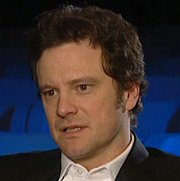 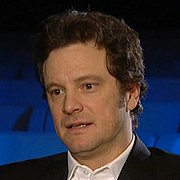 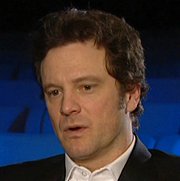 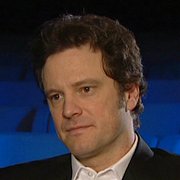 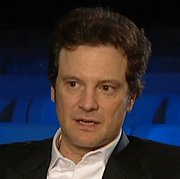 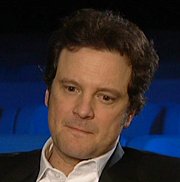 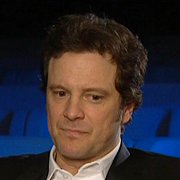  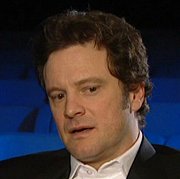  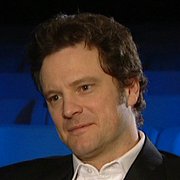   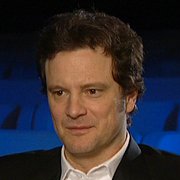 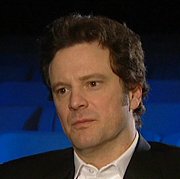 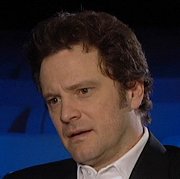 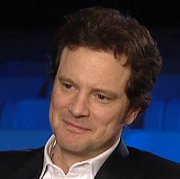 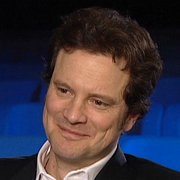 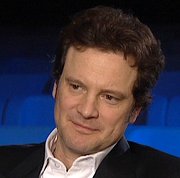 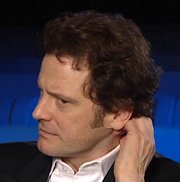 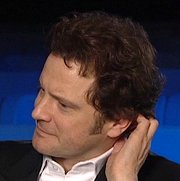 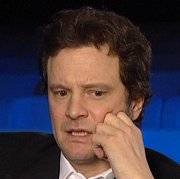 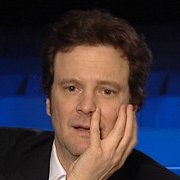              |